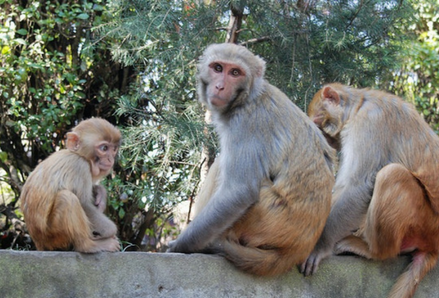You’re reading the latest edition of our monthly travel and health news round up. Every month, we share four interesting articles in travel and tropical medicine.
Refugee health has been at the top of our minds recently. World Refugee Day on June 20 was an important reminder that not everyone gets to choose when and where they travel. (You can see the highlights of the recent North American Refugee Health Conference with the hashtag #NARHCTO on Twitter.)
In the news this month
1. Martin Wolfe, doctor specializing in tropical and travel medicine, dies at 82
Washington Post
Martin Wolfe was a long-time IAMAT physician. We will always remember his kindness and generosity.
– IAMAT President M. Assunta Uffer-Marcolongo
Dr. Martin Wolfe was an IAMAT doctor in Washington, D.C. and an early travel medicine specialist. He opened Traveler’s Medical Service of Washington in 1980 and later opened another branch in New York. Both clinics are listed in our Medical Directory.
2. The Trouble with Medical “Voluntourism”
Scientific American
International medical volunteering and student placements have become more and more popular. Most volunteers have good intentions but without proper training, supervision, and an understanding of the community and local health system, they can unintentionally cause harm.
Global health researcher Noelle Sullivan says:
The desire to help those in need may confer volunteers with social esteem, yet few volunteers stay long enough to know patient outcomes, or realize their effect on the local health system.
Considering your impact on your host community is central to being a responsible traveller. If you’re thinking about volunteering abroad, research thoroughly, ask questions, and consider the motivations for your trip. (Our ethical volunteering checklist is a good starting point.)
If you want to learn more about international medical volunteering, read this article by Irmgard Bauer. It explores the ethics of medical volunteering and student placements and asks “How can we make medical assistance collaborative and equitable?”
3. When A Kiss Is Not A Kiss: Why So Many People Get Bitten By Monkeys
NPR
Is that monkey friendly? Researchers have found that humans aren’t very good at interpreting the facial expressions of non-human primates. For travellers, this can lead to monkey bites or near misses like this one from the article:
“I’m going to go touch him,” my husband, Matt, says, referring to the male [baboon] at the gas station parking lot, munching on a cracker. “Just one little pat on the head.”
So Matt — a very smart man, with a degree in computer science — steps slowly toward the creature. He’s 3 feet away … 2 feet away … 1 foot away when … boom!
Mr. Baboon opens his mouth wide and reveals ginormous front teeth — about the size of thumbs. Matt freezes, turns to me and starts running back.
Travel medicine practitioners shared words of caution about monkey bites:
Good advice! Our clinic sees 2-5 folk a month bitten in Bali! https://t.co/ZYKE3OiPQk
— Marc (@shaw_wise) June 21, 2017
Monkeys want your food and will bite to get it. Keep out of sight/smell when traveling. #tvlmed #rabies https://t.co/ItnpQDp1D0
— Sarah Kohl (@SarahKohlMD) June 16, 2017
If you come into contact with animals, be cautious and keep a respectful distance. If you know you’ll be working with animals (through a veterinary placement or wildlife refuge, for example), you should get vaccinated against Rabies before your trip. Pre-exposure vaccination is also recommended if you are planning long-term or rural travel where you may come into contact with animals, including feral dogs. (Learn more about Rabies in our Health Risk database.)
4. Travelling with dementia? With extra prep from caregivers, absolutely
Toronto Star
Summer is prime family travel time. With the right support and a little extra planning, people with dementia can travel too. Occupational therapist Nina Rittenberg provides useful tips for caregivers of travellers with dementia, including how to select a destination:
Travelling to a set location — like a family cottage — and staying put is usually easier than a trip that requires daily change. Consider this option in light of a road trip.
Travellers with dementia should always be accompanied. Don’t forget to schedule time for caregivers to take a break. If you’re a health practitioner, see “Chapter 14: Travelling with dementia” in our book The Older Traveller: A guide for the health professional.
Photo by Tullia Marcolongo.
Article by Daphne Hendsbee.



